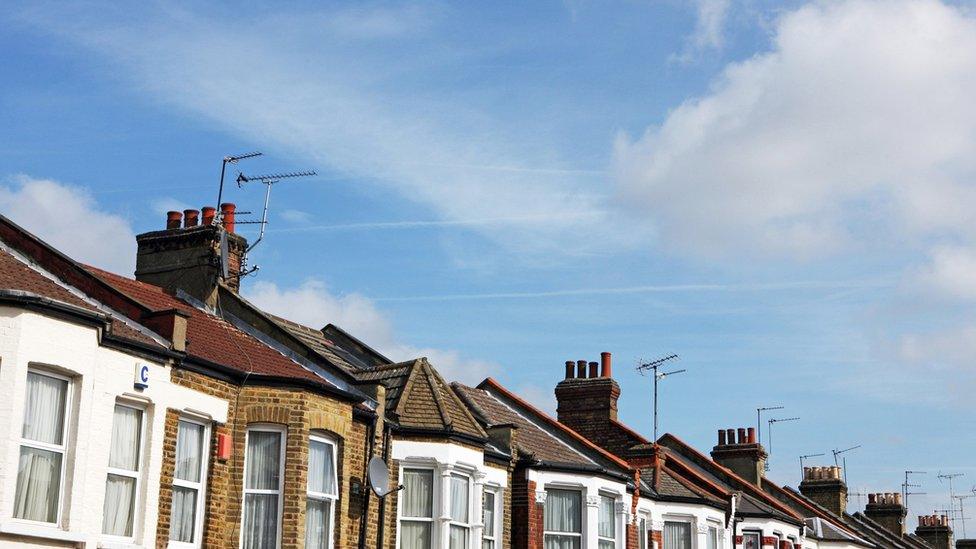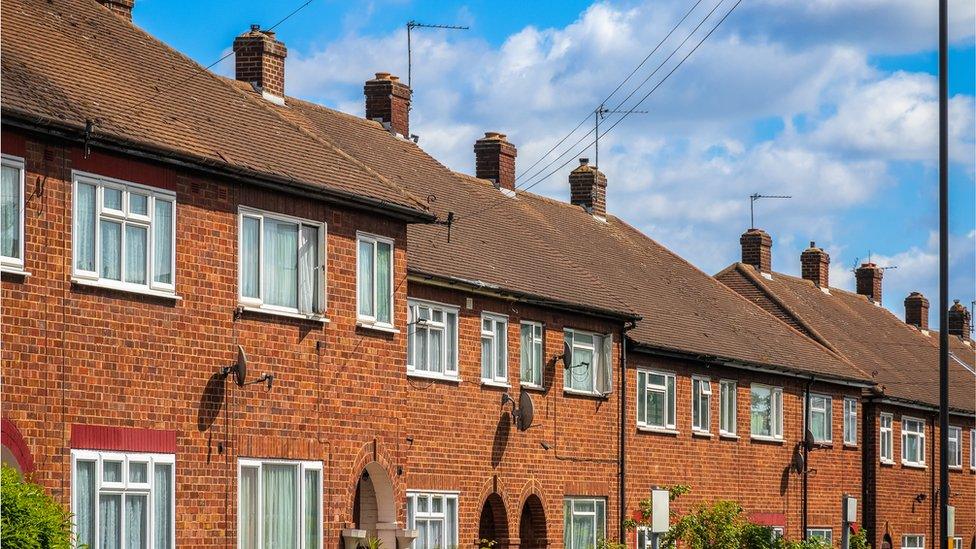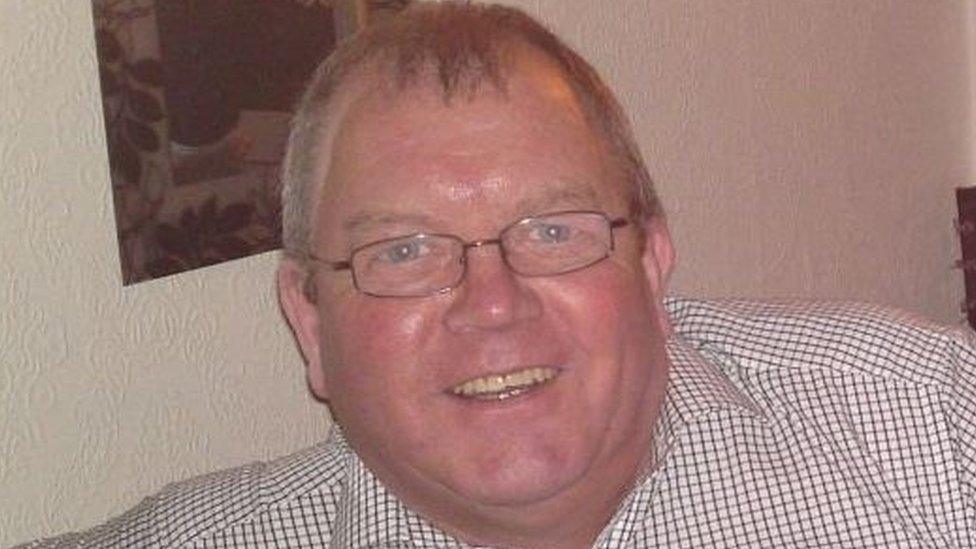Housing Executive rents in Northern Ireland to rise from April
- Published

The Northern Ireland Housing Executive is increasing rents by 7% from the start of April.
The Housing Executive, which is Northern Ireland's public housing authority, owns about 85,000 homes.
Almost 80% of tenants will be protected from the impact of the rent increase because they get housing benefit or universal credit.
Tenants who don't get those benefits will have to pay an average of an additional £4.86 per week.
Housing Executive rents have been frozen for five of the last seven years.
Chief executive Grainia Long said a further freeze would have meant a cut in services against a backdrop of 10% inflation.
"The new rent level will improve our ability to invest in our stock and ensure sustainable levels of pay for our staff," she said.
"It has also taken into account the rate of inflation and rising costs for goods and materials."
The rent increase is in line with increases across Northern Ireland's social housing associations and social rents in other parts of the UK.
Normally a decision on Housing Executive rents would be taken by Stormont's communities minister.
In the absence of a minister, the decision was taken by the Department of Communities senior official, under the powers granted to him by the Executive Formation Act.
Northern Ireland has been without a functioning government since February 2022, when the DUP walked out of the first minister's role in protest against the protocol.
Sinn Féin won the largest number of seats in May's election, but no new power-sharing executive could be formed due to the DUP's ongoing boycott.
Unionist politicians argue the post-Brexit trading arrangement undermines Northern Ireland's position in the UK.
A spokesperson said: "Tenant affordability was the department's key consideration; 78% of tenants are currently in receipt of housing assistance.
"For the other 22% of tenants, the impact of the increase was modelled across a range of household scenarios, all of which demonstrated its affordability."
Related topics
- Published20 February 2020

- Published19 November 2022

- Published16 February 2022
